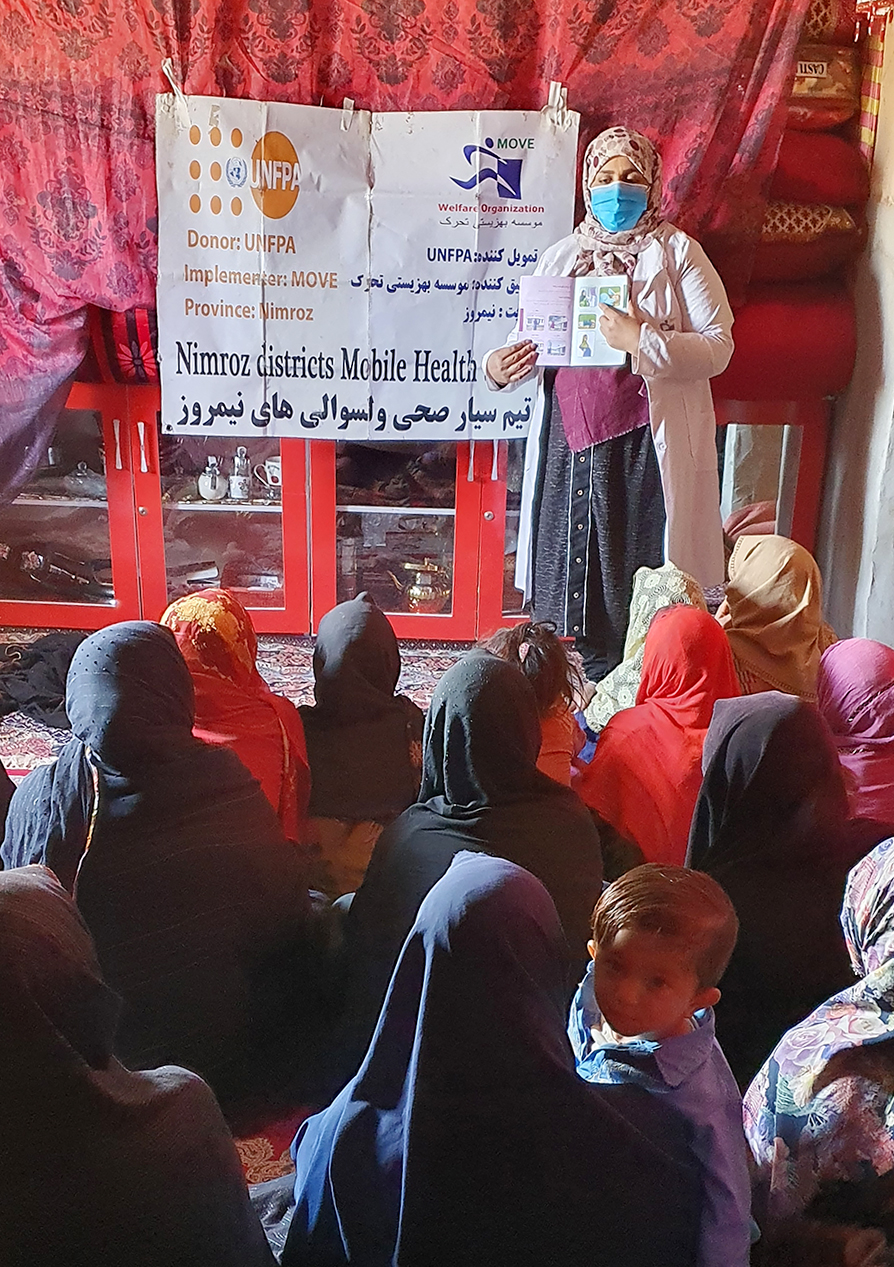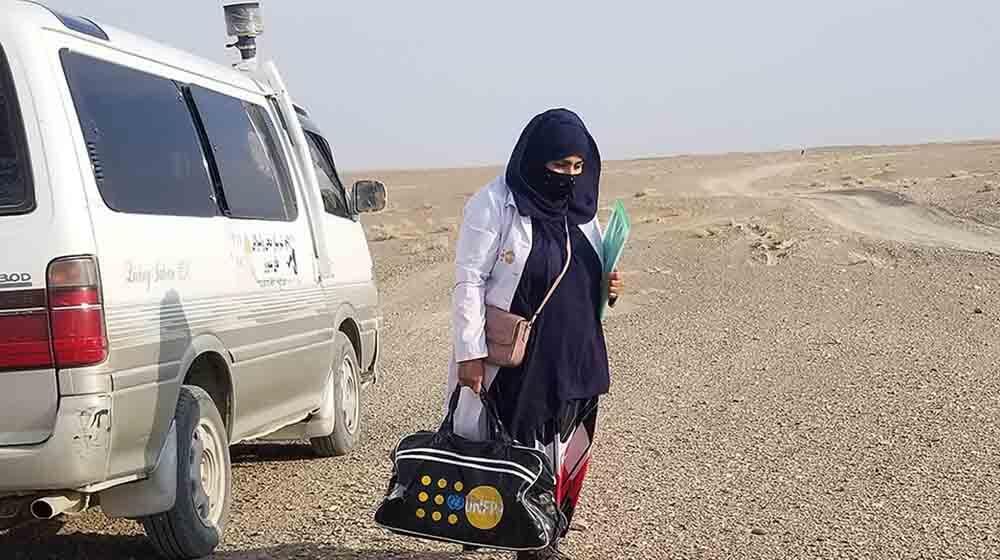Nimroz, Afghanistan – “Wake up! We have a delivery!” Midwife Suhila Rasuli spoke on the phone with urgency but softly as she did not want to wake up the rest of her family early in the morning. She was informing a member of her Mobile Health Team (MHT) that they are responding to a call for childbirth assistance.
“The call was from Qala-e-Naw village. A pregnant woman was in labor and they needed me,” Ms. Rasuli recalls. She glanced at the clock, it was almost 6 a.m. but still pitch black on that wintry morning when she looked out the window.
Hurriedly, Ms. Rasuli dressed up in her midwife uniform and prepared her midwifery kit. It includes a UNFPA Clean Delivery Kit, which contains essential supplies for out-of-hospital childbirth such as a plastic sheet, sterile gloves and razor blade, umbilical cord tie and washcloth.
In half an hour, she was on her way to Khashrod District with Niamatullah Haidari, a vaccinator with the MHT. They drove for about two hours in the freezing -11Co winter temperature, navigating the difficult and uneven terrain to reach the mother in labor. The heavy rains the previous week made it more difficult to traverse the road. “We had to stay on that path to reach the village. If we took an alternate route, we might drive through land mines,” explains Mr. Haidari.
The location of the village they are visiting is not new to them - she delivered a baby from the same family less than a month ago. “Before we left, I gave my contact number to the villagers and told them to call me anytime they needed my help. I am glad they remembered to call me,” says Ms. Rasuli.
Traveling for hours to get to a patient used to unnerve Ms. Rasuli when she was new to the job. But over the eight years that she has been working as a midwife, she has built her confidence and instead focuses her energy on preparing for a difficult situation, in case it happens.
“I also find courage in the fact that the family believes in my professional capacity and that they are comforted and assured that the mother and baby will be fine under my care,” she says.

education sessions for women in the communities that the
Mobile Health Team visits. (Photo: Naqib Rahimi, MOVE)
Finally reaching their destination, Ms. Rasuli immediately attended to the mother. Two hours later, she announced the birth of a baby boy, the mother’s third child. “The delivery was normal and everyone in the family applauded with joy when they learned that both mother and baby are doing fine,” Ms. Rasuli says.
MHTs are roving medical teams that provide a range of services, particularly maternal, newborn, child, adolescent health care and psychosocial support in remote communities. IN 2022, UNFPA supported 117 MHTs, reaching 1.5 million across 25 provinces in Afghanistan.
In Nimroz, UNFPA works with its NGO partner, MOVE, to reach the population most in need in hard-to-reach areas where health services are severely lacking. UNFPA is able to provide the support in partnership with the governments of Japan, Italy, United Kingdom and United States, as well as the European Civil Protection and Humanitarian Aid Operations (ECHO) of the European Union.
According to Mr. Haidari, before the MHT was established, remote areas in the province did not have immediate access to health services. Transport services going to the nearest health facility are rarely available and if they are, villagers could not afford the rental cost. “There were a lot of maternal and newborn deaths before because most of the deliveries took place at home without the help of a skilled birth attendant,” he says.
Ms. Rasuli started working with the MHT four months ago and has delivered 27 babies with the team.
She tells UNFPA: “Assisting deliveries is a big responsibility that makes me nervous sometimes. But when it is done, it feels like a big achievement and a great relief when I see everyone happy and giving me the credit for taking care of two lives - the mother and the baby.”
-Text by Ehsanullah Popal




